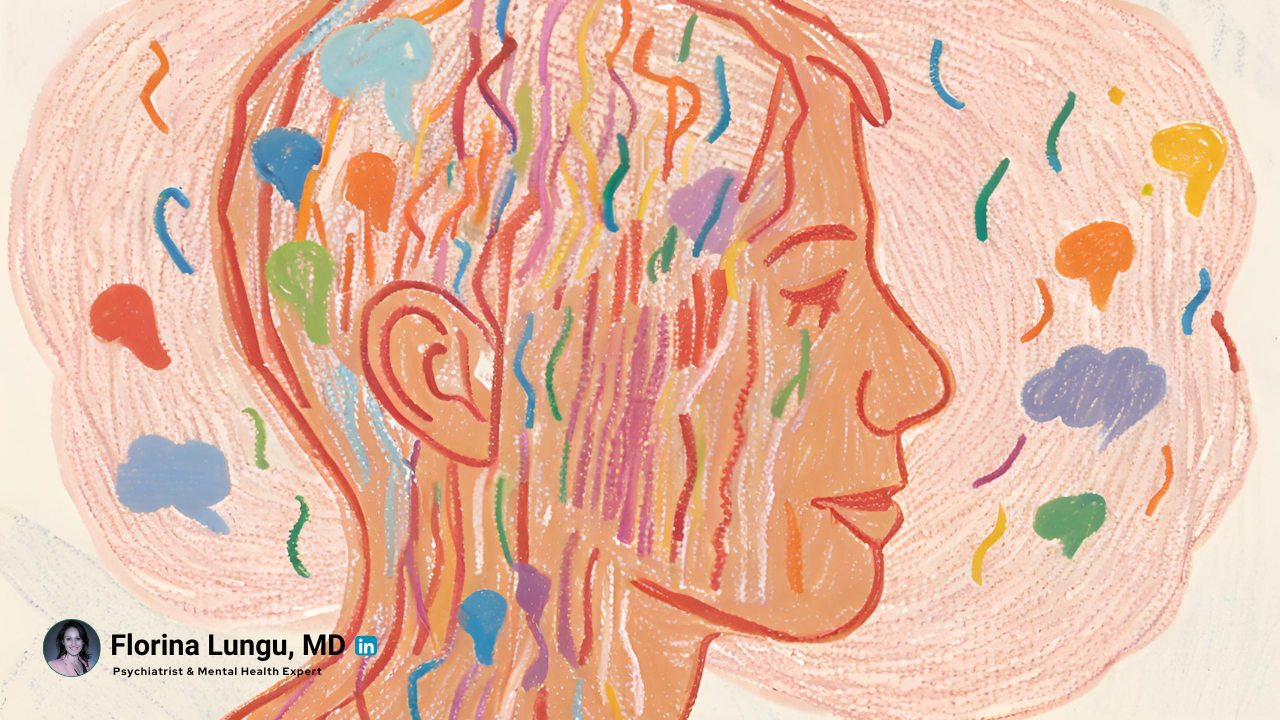
I’ve spent years studying the mind. Diagnosing. Treating. Listening. Helping people find their way back from darkness.
But some of the most important lessons I’ve learned—the ones that actually change lives—aren’t in the textbooks. No professor stood at the whiteboard and told me this. No exam tested me on it.
So today, I’m telling you.
Because you deserve to know.
Here’s What They Don’t Tell You:
You are not just your thoughts. You are not just your biology. You are not even just your past.
You are what you let in.
Not only who you let into your life. But what.
The food on your plate. The beliefs you rehearse. The habits you justify. The words you speak to yourself when no one else is listening. The news, the scroll, the noise.
And most of the time? It’s not the obvious things that are hurting you. It’s the quiet, familiar ones you’ve learned to tolerate.
The Book That Made Me Stop and Think Again
I recently read a book called “Who’s In Your Room?” by Dr. Ivan Misner, Stewart Emery, and Rick Sapio.
The metaphor is simple—but if you really let it in, it shakes you.
Imagine your life is a room. There’s only one door. It opens one way. Once someone steps inside, they’re there for good.
Every person you’ve ever let in—their words, their judgments, their energy—they stay. They shape the space around you. They shape you.
But as I sat with this idea, I couldn’t help but think: It’s not just people sitting in that room.
It’s also everything else you’ve allowed to take up space inside you.
The Silent, Uninvited Guests Filling Your Room
It’s the sugar you call “just a treat.” But it’s not just a treat. It’s the blood sugar spike that hijacks your mood and patience by mid-morning. The irritability you blame on your workload—but that started on your plate.
It’s the wine at night—the “one glass to relax.” But it’s not just the wine. It’s the anxiety that wakes you at 3 AM. The poor sleep. The next-day brain fog.
It’s the scrolling—the “I’m just catching up for five minutes.” But what you’re really catching is a head full of polished images, half-truths, and curated lives. Comparison. Shame. The slow erosion of your own sense of enoughness.
And here’s the hardest part: The voice inside your head whispering “You’re not enough”? Most days, it’s not even your voice. It belongs to someone else. Your mother. Your ex. Your third-grade teacher. But you gave it a seat. You let it stay.
What Psychiatry Taught Me (That They Didn’t Teach in School)
In psychiatry, we talk about biopsychosocial models. Biology. Psychology. Social factors. How they interact to shape mental health.
But here’s what I’ve learned by sitting with my patients—and with myself:
You are the sum of what you consume.
- What you eat.
- What you believe.
- What you repeat.
- What you tolerate.
- What you call “normal.”
Because what you tolerate… multiplies.
The Door Won’t Close Itself
And here’s what makes this so dangerous:
The door doesn’t care about your excuses. It doesn’t care if you didn’t mean to let that belief in. It doesn’t care if the habit was “just for now.” It doesn’t care if the toxic person was family.
Once it’s in… it’s in.
Unless you decide to take back your space. Unless you starve the belief by refusing to feed it. Unless you question the story, change the habit, challenge the pattern.
This Isn’t Meant to Be Comfortable
I’m not here to affirm you today. I’m here to challenge you.
- Who’s in your room right now that doesn’t deserve to be?
- What thoughts are you feeding that would die without your attention?
- What habits are quietly draining the life out of you while you tell yourself they’re harmless?
- What beliefs are you still carrying that were never even yours to begin with?
Stop telling yourself it’s “just a little stress.” Stop telling yourself “it’s not that bad.” Stop telling yourself “there’s no time to deal with it.”
No.
The cost of tolerating these things is higher than you think. And you’re the one paying for it.
The Room Is Yours. But Only If You Claim It.
You can’t erase the past. But you can choose how much space it gets. You can choose what you feed. You can choose what gets a seat at your table—and what doesn’t.
So I’ll leave you with this question:
If you closed the door today — right now — who or what would you stop letting in?
I’m listening. Say it out loud. Write it below. Make it real.
The room is yours.
But only if you take it back.
Warmly,
Florina
PS: This was inspired by the book “Who’s In Your Room?” by Dr. Ivan Misner, Stewart Emery, and Rick Sapio
Get My Blog Posts Right in Your Inbox Every Week
Make your mental health a priority. Receive tips and strategies for living well – mentally, physically, and emotionally – every week.
Get My Free Guide: 7 Cheap, Simple Strategies for Boosting Your Brain Performance
Better focus – clearer memory – faster cognition – more mental clarity – improved intellect…
Your brain is capable of beautiful things. If you don’t think you’re getting the most out of your cranial supercomputer, you can reap the benefits of these 7 simple strategies for the low, low price of “free.”